Top Influential Sociologists Today

So what does the study of sociology do for us? The study of sociology builds bridges of understanding between people by revealing both the universality and diversity of human experience. By better understanding human behavior and socialization, we can be more effective in our interactions with each other and the world around us. Read on to learn more about the top influential scholars in sociology today...
Considering a degree in sociology? Visit Our Sociology Page, where you’ll find the best sociology colleges and universities, career information, interviews with top sociologists, influential scholars in the field of sociology, great books, a history of the discipline, online sociology degrees, and more.
At the heart of sociology is the study of human social interactions. The father of sociology, Auguste Comte, defined sociology as a study of society through the lens of the scientific, metaphysical, and religious. Today, we understand that the many factors and forces that contribute to social behavior are nearly limitless. Economics, access, upbringing, education, wealth, politics, environment, gender, race, religion...all of these variables (and many more!) are factors in understanding the social behavior of humans. For this reason, sociologists are highly knowledgeable, interdisciplinary scholars with expertise in multiple fields of study.
Sociological research can also take many approaches. Some famous sociologists conduct phenomenological studies, in which they examine the lived experiences of their subjects. Other sociologists use quantitative methods and mathematical models to analyze and predict human behavior. Sociologists also use different theoretical models for examination of their subjects, such as postmodern and modern social theory.
In what follows, we look at influential sociologists over the last decade. Based on our ranking methodology, these individuals have significantly impacted the academic discipline of sociology within 2010-2020. Influence can be produced in a variety of ways. Some have had revolutionary ideas, some may have climbed by popularity, but all are academicians primarily working in sociology. Read more about our methodology.
Note: This isn’t simply a list of the most influential sociologists alive today. Here we are focused on the number of citations and web presence of scholars in the last 10 years. There are other highly influential scholars who simply haven’t been cited and talked about as much in the last 10 years, whereas some new faces have been making a splash in the news, speaking events, and publishing, publishing, publishing. Our AI is time sensitive. To find some of the big names you might have expected to see here, we encourage you to use our dynamic ranking system and check influence over the past 20 and 50 years.
Top Influential Sociologists 2010-2020
Want more? Discover influential sociologists throughout history:Of All Time | Last 50 Years | Last 20 Years | Black Sociologists | Women Sociologists Note: The time-specific links above take you to rankings that dynamically change as our AI learns new things!
1. Omar Lizardo
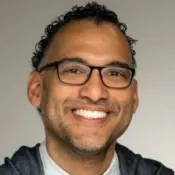
(1974 - )
New York, New York, USA
Areas of Specialization: Cultural Sociology, Cognitive Sociology, Organizational Sociology
Omar Lizardo is co-editor of the American Sociological Review and the LeRoy Neiman Term Chair Professor of Sociology at the University of California, Los Angeles. He has concurrently served as an external member of the Centre for the Critical Study of Global Power and Politics. He was born in 1974 in New York City, New York. After earning his B.A. at Brooklyn College, he went on to earn a Ph.D from the University of Arizona.
Lizardo’s rise as a famous sociologist stems from his research of social networks, sociological theory, cognitive science, and cultural and organizational sociology. His research seeks to understand cultural changes and the forces that drive change within social groups. He is an award-winning writer, winning not one, but two Best Graduate Student Paper Awards from the American Sociological Association – in different categories. His paper, “How Cultural Tastes Shape Social Networks,” was awarded the Clifford Geertz Prize for Best Article in Cultural Sociology.
In recognition of his work and perceived promise in the field of sociology, he was honored in 2013 with the Lewis Coser Award for Theoretical Agenda Setting. He has served as a faculty fellow at Kroc Institute for International Peace Studies at Notre Dame University, and for the Nanovic Institute for European Studies. He was most recently elected to the Sociological Research Association.
2. Bruno Latour
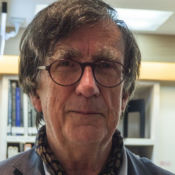
(1947 - )
Beaune, Cote-d’Or, France
Areas of Specialization: Social Constructionism, Actor–network Theory
Bruno Latour was born in 1947 in Beaune, Cote-d’Or, France. He initially focused his studies on philosophy, before earning his Ph.D in theology from the University of Tours.
His work with John Law and Michael Callon produced actor-network theory (ANT), which is a theoretical approach in which humans are seen as not the only factors in social situations. This theory suggests a complex network of interactions between humans and their environments.
He is an accomplished author. His most notable works include We Have Never Been Modern and Science in Action: How to Follow Scientists and Engineers Through Society. He was honored in 2013 with the prestigious Holberg Prize (a lesser known version of the Nobel Prize, specifically for humanities), and has also received France’s Legion d’Honneur. He was voted a fellow of the American Academy of Arts and Sciences. His work has also caused him to be selected as a foreign correspondent for both the Royal Danish Academy of Sciences and Letters, the Royal Academy of Belgium, and the British Academy.
He has taught at the Ecole des Mines de Paris (Centre de Sociologie de I’Innovation), the London School of Economics, and Sciences Po Paris. Now retired, Latour leaves behind a significant legacy in the fields of philosophy, sociology, and anthropology.
3.Harrison White

(1930 - )
Washington, DC, USA
Areas of Specialization: Sociological Theory, Social Network Analysis, Mathematical Sociology
Harrison White is a highly regarded sociologist, currently the emeritus Giddings Professor of Sociology at Columbia University. He was born in Washington, D.C. in 1930. A precocious student, he began studying at the Massachusetts Institute of Technology at only 15 years of age. By the age of 25, he had earned his first Ph.D, in theoretical physics. He then went on to earn a second Ph.D in Sociology from Princeton University.
Aside from his substantial influence on current and future sociologists, he has also been a prolific writer. His best-known works are Identity and Control: How Social Formations Emerge and its rewrite, Identity and Control: A Structural Theory of Social Action. He has also written about economics and markets in his book, Markets from Networks: Socioeconomic Models of Production.
He is credited with the development of socio-mathematical models such as blockmodels and vacancy chains. He is also the provocateur who led what is known as the “Harvard Revolution”, or the “Harvard Renaissance”, a shift rooted in his critique of conventional sociological approaches.
White is very highly regarded among social network analysts for revolutionizing the methods and approaches taken to sociological research. He was honored with the W.E.B. DuBois Career of Distinguished Scholarship Award in 2011.
4.Jürgen Habermas

(1929 - )
Gummersbach, Rhine Province, Germany
Areas of Specialization: Social theory, Political theory, Rationalization, Pragmatism
Jürgen Habermas is a philosopher and sociologist. He has earned a Ph.D. from the University of Bonn and a Dr. Phil. Hab. from the University of Marburg. Habermas is well known as a teacher and mentor.
His work has built on the theoretical traditions of Max Weber, both in rationalization and pragmatism. His study has yielded insights into communication, modernity, emancipation, and rationalization. His philosophical framework draws from the traditions of theorists from Kohlberg to Kant, from Durkheim to Luhmann. In doing so, he ties together developmental psychology, sociology, political theory and linguistic philosophy to create a unified understanding of philosophy.
He has been awarded the Sonning Prize, the Peace Prize of the German Book Trade, the Kyoto Prize in Arts and Philosophy, the European Prize of Political Culture, the Victor Frankl Award, and the Kluge Prize.
Habermas has also published numerous works, including his first, The Structural Transformation of the Public Sphere, published in 1962. His other notable publications include Between Naturalism and Religion: Philosophical Essays, Europe: The Faltering Project, and most recently, This Too a History of Philosophy.
He has also promoted critical evaluation of the role of religion in culture, noting that while religion complicates discussions about social and utilitarian ethics, exclusion of religion in philosophical discourse does more harm than good.
5.Viviana Zelizer
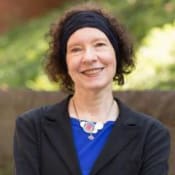
(1946 - )
Areas of Specialization: Economic Sociology, Relational Sociology
Viviana Rotman Zelizer is a prominent sociologist famous for focusing on the economic valuation of the sacred through research of transactions among intimate partners or other “sacred” exchanges. She suggests that all intimate relationships have inherent economic transactions, and that it isn’t necessarily a bad thing. She studied law for two years before moving to the United States. She earned her B.A. from Rutgers University and went on to earn an M.Phil, M.A., and Ph.D from Columbia University.
She has held fellowships with the John Simon Guggenheim Memorial Foundation and the National Endowment of the Humanities. She was the first chair of the American Sociological Association’s new Economic Sociology division. She has written many works about sociology, such as Economic Lives: How Culture Shapes the Economy, and Morals and Markets: The Development of Life Insurance in the United States. Her most recently published book is Money Talks: Explaining How Money Really Works.
In 2006, she became a member of the PEN American Center, and in 2007, she became a member of the American Academy of Arts and Sciences. Zelizer is the Lloyd Cotsen ’50 Professor Sociology at Princeton University. Her current research work is a study of the economic transactions involved with relationships among college students’.
6. Judith Butler

(1956 - )
Cleveland, Ohio, USA
Areas of Specialization: Critical Theory, Gender Theory
Judith Butler was born to a Hungarian, Jewish, and Russian family in 1956. She was first educated in Hebrew school. She received her B.A., M.A., and Ph.D from Yale University.
Her work in feminist and queer theory has been significant and influential, making her rightfully placed amongst famous sociologists. Her most prominent work has been Gender Trouble: Feminism and the Subversion of Identity and Bodies That Matter: On the Discursive Limits of Sex. In her research, she has found that gender is a social construct perpetuated to justify the continued subordination of women and oppression of sexual minorities such as LGBTQ individuals. She further suggests that gender is essentially performative, with the interpretation of gender reliant on action and speech. She has been demonized for her views, even depicted as the “antichrist” by anti-gay activists who reviled her for both her gender and her Jewish heritage.
Despite her polarizing views, Butler has been named a Corresponding Fellow of the British Academy and been honored as “25 Visionaries Who Are Changing Your World” by the Utne Reader. She is the Hannah Arendt Chair at the European Graduate School and has been the Maxine Elliot Professor in the Department of Comparative Literature and the Program of Critical Theory at the University of California, Berkeley, since 1998.
7.Pierpaolo Donati

(1946 - )
Budrio, Italy
Areas of Specialization: Social Policy, Relational Sociology
Pierpaolo Donati is an Italian sociologist, born in 1946 in Burdio, Italy. Donati is best known for pioneering the field of relational sociology. Initially interested in physics, Donati switched his focus to social science, earning his MA from the University of Bologna in 1970. Afterward, Donati performed research at the University of Milan, did doctoral studies at University of Essex, and held the title of full professor of sociology at the University of Bologna from 1980 to 2016, teaching there and elsewhere. He is also a member of the Pontifical Academy of Social Sciences, since 1997.
Donati has worked in developing what he terms the “relational theory of society.” This is a kind of realist approach, which may sound simple to lay-people, but is actually groundbreaking in the field. The key to relational sociology is that it redefines the object of sociology.
Traditionally, sociology has viewed society as a space in which things happen, and relations play out. Relations are things like family, citizenship, welfare, social interactions, and policies. A quick summary of Donati’s argument (and why it is so significant) is essentially that the relations themselves are society. In other words, society is constituted by these relations, and not the other way around. In particular, Donati’s goal in advancing this argument is to understand the effect of globalization on societal change. A common criticism is that this view overlooks the significance of interests in our social relations.
Published works from Donati include Relational Sociology: A New Paradigm for the Social Sciences and The Relational Subject.
For his work, Donati has received awards and honors including the San Benedetto Prize for the promotion of Life in Europe, the Mario Macchi Prize 2009 by the National Association of Catholic Schools, and Honoris causa Doctorate of the Pontifical Lateran University for studies on marriage and family.
8. John Levi Martin
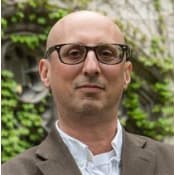
(1964 - )
New York, New York, USA
Areas of Specialization: Cultural Sociology, Cognitive Sociology, Political Sociology
John Levi Martin is the Florence Borchert Bartling Professor of Sociology at the University of Chicago. He graduated from Wesleyan University with a B.A. in sociology and English. His undergraduate thesis, The Epistemlogy of Fundamentalism, received the Herbert Hyman prize for undergraduate sociology. He earned his M.A. and Ph.D from the University of California, Berkeley.
Martin has published a multitude of works, including the American Sociological Association’s Theory Book Prize winners, Social Structures and The Explanation of Social Action. He is currently working on a book, The True, The Good and the Beautiful: On the Rise and Fall of the Kantian Grammar of Action, and several articles.
His research has explored sexual decision making, classical theory, interpersonal power, sexiness, and political psychology. He has been a member of a number of organizations for sociologists, including the International Network for Social Network Analysis, the Society for the Scientific Study of Religion, and the American Sociological Association, and sits on the editorial boards of publications such as the American Sociological Review and Social Psychology Quarterly. He recently organized a Social Structure and Process Conference in Chicago. He has also lent his expertise by serving as a peer reviewer for scholarly publications in fields as diverse as anthropology and mathematics.
9.Mark S. Granovetter
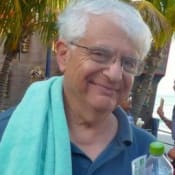
(1943 - )
Areas of Specialization: Economics Sociology, Social Network Theory
Mark Sanford Granovetter is a professor at Stanford University. He is a prominent sociologist who earned an A.B. in history at Princeton University and a Ph.D in sociology from Harvard University.
Granovetter ranks amongst the most famous sociologists because he is one of the most cited experts in the field, best known for his paper called The Strength of Weak Ties, which has been cited over 50,000 times. He has also conducted research in economic sociology. His article, Economic Action and Social Structure: The Problem of Embeddedness, is said to have inspired a new field of inquiry in economic sociology. In 2014 he was believed to be a Nobel Prize contender and was placed on Thomson Reuters’s list predicting winners for economics.
He has spent his career at institutions such as Johns Hopkins University, Stony Brook University, Stanford University, and Northwestern University.
His most recent book, Society and Economy: Framework and Principles, was published in 2017. He was recognized recently by Thomson Reuters, which named him a Citation Laureate, an honor reserved for the most heavily cited scholars in their respective fields of inquiry. He is the Joan Butler Ford Professor of Sociology and the Joan Butler Ford Professor in the School of Humanities and Sciences at Stanford University.
10.Diane Vaughan
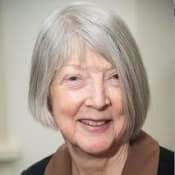
( - )
Areas of Specialization: Normalization of Deviance, Organizational Behavior
Diane Vaughan is a professor at Columbia University. She earned her Ph.D. in sociology from Ohio State University and is best known for coining the term, “normalization of deviance.”
She has theorized that normalization of deviance contributed to the Challenger and Columbia disasters, in which problems, inaccurate results or deviations from the norm become normalized until they cause a catastrophe. This means that the importance of early warning signs is gradually minimized until the damage becomes obvious. Her book on this topic, The Challenger Launch Decision: Risky Technology, Culture and Deviance at NASA, was awarded the Rachel Carson Prize and the Robert K. Merton Award. It was also nominated for the National Book Award and a Pulitzer Prize.
In healthcare, normalization of deviance occurs for four main reasons: Healthcare workers don’t understand the rationale for guidelines, they consider knowledge imperfect, they feel they must break rules for the common good, or they are afraid to speak up. In all of these cases, exceptions are made to rules over time, resulting in a normalization that degrades order and process. By communicating effectively and monitoring compliance, healthcare organizations can avoid the potential for service degradation.
Vaughan has also studied human relationships – most notably relationship breakups, about which she wrote a book, Uncoupling: Turning Points in Intimate Relationships.
11.Ann Mische
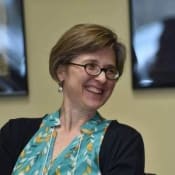
(1965 - )
Areas of Specialization: Relational Sociology, Political Sociology, Organizational Sociology
Ann Mische is Professor of Peace Studies at the Kroc Institute for International Peace Studies and Associate Professor of Sociology at the University of Notre Dame. She earned a B.A. in philosophy from Yale University and an M.A. and Ph.D in sociology from The New School for Social Research.
Her research interests have included social networks, conflict in politics, and political and relational sociology. Her work, Partisan Publics: Communication and Contention across Brazilian Youth Activist Networks, was an honorable mention for the American Sociological Association’s Best Book in Political Sociology Award. The book tracked five small cohorts of young, Brazilian activists through their various “networks” over 20 years of political change.
She has served on editorial boards for a number of sociology journals, such as American Journal of Sociology and Qualitative Sociology. She was named co-editor of the journal Social Movement Studies: A Journal of Social, Cultural, and Political Protest in 2001, and served in that role until 2008. She is working on a book regarding social and political change, peacebuilding, and democracy, tentatively titled, Futures in Contention: Public Scenarios and Transformative Politics in the Global Arena. Mische has also chaired two different sections of the American Sociological Association – Political Sociology and Theory.
12. Michael Burawoy

(1947 - )
Areas of Specialization: Public Sociology, Labor Studies
After graduating with a degree in mathematics from the University of Cambridge, Michael Burawoy went to Zambia to conduct research. While there, he earned his master’s degree from the University of Zambia. He went on to earn a Ph.D in sociology from the University of Chicago.
A specialist in the study of industrial workplaces, he has researched workers in Russia, Hungary, and Chicago. It is from this work that he wrote his most well-known book, Manufacturing Consent: Changes in the Labor Process under Monopoly Capitalism. In that work, he sought to examine sociological issues and problems such as postcolonialism, class consciousness, and the transition from socialism to capitalism. Since that time, he has pivoted to study public sociology, investigating how sociology is taught at his own university.
He was honored by the American Sociological Association in 2004 for his work on public sociology. In his address to them on that occasion, he suggested four categories of sociology - public, policy, professional, and critical sociology. He later served the American Sociological Association as president and was vice-president for the Committee of National Associations of the International Sociological Association. Most notably, he was elected the 17th President of the International Sociological Association by the XVII ISA World Congress of Sociology, serving a term from 2010-2014.
13.Mustafa Emirbayer
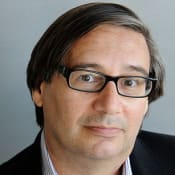
(1950 - )
Areas of Specialization: Social Network Analysis, Relational Sociology
Mustafa Emirbayer Is a professor of sociology at the University of Wisconsin–Madison. He graduated with his B.A. from the University of California, Davis and earned his M.A. and Ph.D from Harvard University.
He has published several articles and books about classic and contemporary sociological theory. His Race in America (written with M. Desmond), is a widely used textbook for undergraduate sociology students. He was honored by the American Sociological Association for The Racial Order, which received their Theory Prize. His research interests have included civil society, psychoanalytics, pragmatic philosophy, relational sociology, and the public sphere.
He has been the editor-in-chief of Sociological Theory journal, and was instrumental to the development of The New York School of relational sociology, along with colleagues, Charles Tilly and Harrison White. Network Analysis Culture, and the Problem of Agency, written in collaboration with colleague Jeff Goodwin, won the Clifford Geertz Award for Best Article in Cultural Sociology in 1994. His most frequently cited work was an article co-written with Ann Mische, What is Agency?, which examined human agency through the lens of routine and purpose.
Formerly a chair for the Theory Section of the American Sociological Association, Emirbayer is now the editor of Sociological Theory.
14.Sherry Turkle

(1948 - )
New York, New York, USA
Areas of Specialization: Human-Technology Interaction
Sherry Turkle is a noted expert on the interactions between humans and technology. She earned a B.A. in Social Studies from Radcliffe College and her Ph.D in sociology and personality psychology from Harvard University. Her career has been spent examining the advancement of technologies and the changes in human social behavior that have resulted.
She has written numerous books about humans and technology, including The Second Self: Computers and the Human Spirit and Alone Together: Why We Expect More from Technology and Less from Each Other. The Second Self is a highly regarded work about how technology is changing how humans think. In Alone Together: Why We Expect More from Technology and Less from Each Other, Turkle suggests that technology is often a means of escaping reality, and as we escape reality, we drift further from genuine human interaction.
She also co-authored a study with the late Seymour Papert, titled, Epistemological Pluralism and the Revaluation of the Concrete. In this study, they evaluated the experience of computer programming instruction for women vs. Men, and how the value of “hard” knowledge is overstated and should be reevaluated.
As a famous sociologist, Turkle has been honored by Forbes magazine as one of “America’s Top 50 Women in Tech”,” and “Woman of the Year” by Ms. Magazine. She is the Abby Rockefeller Mauze Professor of the Social Studies of Science and Technology at the Massachusetts Institute of Technology.
15.Patrik Aspers
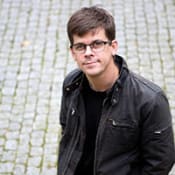
(1970 - )
Areas of Specialization: Economic Sociology
Patrik Aspers is the chair of sociology at the University of St. Gallen, Switzerland and professor of sociology at Uppsala University. He earned a Ph.D. from Stockholm University, studying under Richard Swedburg and Harrison White.
A student of markets, he has used a phenomenological approach to study sociological theory and economic sociology in the fashion industry. He is currently engaged in a long-term research program titled “Being and Order”. This project, expected to continue until 2037, examines how human beings exist in the world, and the social constructs that make up the “order” of daily life.
He has delivered lectures for institutions such as Harvard University and Columbia University and was the president of the Swedish Sociological Association from 2010 to 2012. He has worked with or for the London School of Economics, College de France, and the Max Planck Institute for the Study of Societies.
He is the author of more than 77 publications, including “Forms of uncertainty reduction: decision, valuation, and contest” and Re-Imagining Economic Sociology.
He is currently working on a book about public ways of uncertainty reduction, specifically to reduce the problems of uncertainty, risk and ambiguity to support markets and institutions.
16.Christian Smith
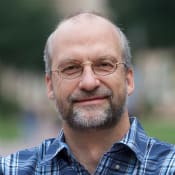
(1960 - )
Areas of Specialization: Cultural sociology, Sociological Theory, Sociology of Religion
Christian Smith is the William R. Kenan Jr. Professor of Sociology at the University of Notre Dame and a faculty fellow of the Kroc Institute for Peace Studies and the Helen Kellogg Institute for International Studies. He earned a B.A. in sociology from Gordon College and an M.A. and Ph.D. from Harvard University. He went on to also study at the Harvard Divinity School for a year.
He is best known for his study of the sociology of religion, with explorations of spirituality in adolescence, evangelicalism, modern religion and the science and philosophy of generosity. He is also credited, with Melinda Lundquist Denton, for the term moralistic therapeutic deism which is used to describe the religious beliefs of American young people. This belief system is based on a basic understanding of good vs. evil and heaven vs. hell, in which God exists but is generally not involved with day-to-day life.
Smith uses a critical realism approach to sociological study. He has written a number of books, including To Flourish or Destruct: A Personalist Theory of Human Goods, Motivations, Failure, and Evil, How to Go From Being a Good Evangelical to a Committed Catholic in 95 Difficult Steps, and What Is a Person?: Rethinking Humanity, Social Life, and the Moral Good from the Person Up.
17.Laurent Thévenot

(1949 - )
Areas of Specialization: French Pragmatic Sociology, Economic Sociology
Laurent Thévenot is an influential sociologist and professor at the Ecole des Hautes Etudes en Sciences Sociales (EHESS, or, translated: School for Advanced Studies in the Social Sciences). Born in 1949, he is now considered one of the most influential thinkers in Economic Convention Theory and a fresh interpretation of French pragmatic sociology.
He has written two major works with colleague and frequent collaborator, Luc Boltanski, On Justification and On Justification: Economies of Worth. On Justification inspired a new French Pragmatic Sociology with its examination of current methods of examining the interrelationships between politics, economics, and society.
On Justification: The Economies of Worth, presents a theory of multiple social orders, several in fact, including fame, industrial, domestic, inspired, civic, and market. They suggest that it is the interplay of these six orders that makes up our perception of worth and value, and that the calculus for this is not universal due to the varied perspectives involved. Between these two works, Thévenot and Boltanski have transformed conventional methods of sociological inquiry.
He is a founder of the Group de Sociologie Politique et Morale, (roughly translated to: Sociology Group Politics, and Moral), and co-editor of the journal, Annales. Histoire, Sciences and Sociales.
18.Raewyn Connell

(1944 - )
Sydney, NSW, Australia
Areas of Specialization: Hegemonic Masculinity, Social Class
A sociologist and intellectual of the Australian New Left, Raewyn Connell was born in Sydney, Australia in 1944. She earned a B.A. at the University of Melbourne and a Ph.D from the University of Sydney.
Connell first emerged on the sociology scene with her work on class and education, including Ruling Class, Ruling Culture and Class Structure in Australian History. Her research into gender and masculinity yielded additional works, including Gender and Power: Society, the Person, and Sexual Politics and Masculinities. Her work on the social construct of masculinity and hegemonic masculinity is foremost in the field, with Masculinities being the most cited work in that field of inquiry.
Her expertise is sought internationally, leading to her role as an advisor to United Nations efforts on gender equality. She is a life member of the National Tertiary Education Union and holds seats on a number of advisory boards and editorial boards, including The International Journal of Inclusive Education and The British Journal of Sociology, Theory and Society. Her teaching positions have included Harvard University, University of California, Santa Cruz, and Macquarie University, where she was the founding professor of sociology. She retired from the University of Sydney in 2014, and was named Professor Emerita. A video of her final lecture, The Knowledge Industry and Counter-Power, can be found online.
19.Paul DiMaggio

(1951 - )
Philadelphia, Pennsylvania, USA
Areas of Specialization: Social Inequality, High Culture
Paul Joseph DiMaggio is a professor of sociology at New York University and A. Barton Hepburn Professor Emeritus of Sociology and Public Affairs at Princeton University. He earned his B.A. from Swarthmore College, and his M.A. and Ph.D in sociology from Harvard University.
DiMaggio’s body of work has included social inequality, the advent of “high culture”, and organizational structures. His work suggests that organizational behavior is driven less by efficiency and more by the desire for the approval of outside stakeholders. Faced with this tension, organizations stifle creativity and innovation and make suboptimal decisions that only appear beneficial on their face, but are in fact counter to the best interests of the organization.
In his examination of the concept of “high culture” he found that when class distinctions are, or appear to be, weakened, society finds other ways of differentiating higher class, such as through the patronage of the arts or membership in prestigious social clubs.
Previously, he has been a fellow at the John Simon Guggenheim Memorial Foundation and the Center for Advanced Study in the Behavioral Sciences. He has also served on the Connecticut Commission on the Arts, and was the executive director of Yale’s program on nonprofit organizations.
20.Saskia Sassen

(1947 - )
The Hague, Netherlands
Areas of Specialization: Urban Sociology, Urbanization
Saskia Sassen is Robert S. Lynd Professor of Sociology at Columbia University and Centennial Visiting Professor for the London School of Economics. Born in 1947 in The Hague, Netherlands, she grew up in Buenos Aires, Argentina. Her father was a Nazi journalist and a member of the Waffen SS. She earned her M.A. and Ph.D from the University of Notre Dame and an additional master’s degree in philosophy from the University of Poitiers.
A recognized expert in urban sociology, Sassen is credited with coining the term, “global city” used to describe a population center integral to a larger global economic network. Weaving variables of inequality, gendering, and digitization through her study of urban politics, she has investigated the phenomena of transnational human migration, globalization, immigration, and denationalization.
She has written numerous books, such as The Global City: New York, London, Tokyo, Losing Control? Sovereignty in an Age of Globalization, and Expulsions: Brutality and Complexity in the Global Economy. For her significant accomplishments and scholarship in the field, she was honored with the Prince of Asturius Award in Social Sciences in 2013. She is a member and former chair of the Committee on Global Thought. The French government also recognized her as a Chevalier de l’Ordre des Arts et Lettres.
21.Michel Callon
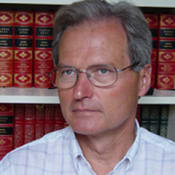
(1945 - )
Areas of Specialization: Actor-Network Theory, Sociology of Medicine
Michel Callon is a member of the Centre de sociologie de l’innovation and a professor of sociology at the École des mines de Paris.
He is well known for his work in science, technology and sociology. He has been instrumental in the study of anthropology, the socio-economics of innovation, scientometrics and quantitative research methods and the sociology of medicine.
Staking his claim amongst famous sociologists, Callon’s most notable achievement is Actor-Network theory, a theoretical framework developed in collaboration with Bruno Latour and John Law. He was chairman of the Society for Social Studies of Science and is author of numerous scholarly works.
His work has redefined our understanding of performativity, technical democracy and the principle of generalized symmetry. In his work, he took a multidisciplinary approach, marrying together theories from economics, sociology, psychology, anthropology and other fields to better understand the interrelations between the ways that individuals interact with markets and economic forces.
He has written several books, including The Laws of the Markets, and Mapping the Dynamics of Science and Technology: Sociology of Science in the Real World. Callon was honored with the John Desmond Bernal Prize in 2002 for his substantial contributions to our understanding of democracy, society and economics.
22.Donald Angus MacKenzie
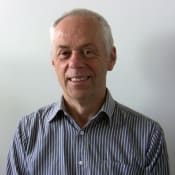
(1950 - )
Areas of Specialization: Financial Markets, Sociology of Science and Technology
Donald Angus MacKenzie is professor of sociology for the University of Edinburgh in Scotland. He earned a B.Sc. in applied mathematics and a Ph.D. from the University of Edinburgh.
A well-known researcher in the field of science and technology, he has studied diverse subject matter from the history of eugenics to computing and finance.
He was honored by Prince Philip, Duke of Edinburgh, in 2006 for his work on science and technology issues. His books, Inventing Accuracy: A Historical Sociology of Nuclear Missile Guidance and Material Markets: How Economic Agents are Constructed, reflect his interests in multiple fields of inquiry.
He has held visiting faculty positions at the Massachusetts Institute of Technology, the Max Planck Institute, Harvard University, and the École Nationale Supérieure des Mines de Paris. He is a winner of the Robert K. Merton Award, the Viviana A. Zelizer Distinguished Scholarship Award, the Ludwik Fleck Prize of the Society for Social Studies of Science, and the U.S. Navy Prize in Naval History.
MacKenzie also provides leadership through his work on the Scientific Advisory Board for Sciences Po, the UK Economic and Social Research Council, the Society for the History of Technology and as a fellow of the Royal Society of Edinburgh.
23.Richard Swedberg
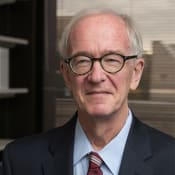
(1948 - )
Areas of Specialization: Economic Sociology, Social Theory
Richard Swedberg is a sociologist from Sweden who specializes in economic sociology and social theory. He has earned a Ph.D from Boston College and a MM.L. (“Juris kandidat”) from Stockholm University.
His best known work in social theory is The Art of Social Theory, a practice-oriented monograph on theory. His work in economic sociology was pioneering, and he helped transform the discipline into a recognized subfield in sociology. He has written multiple books on economic sociology, including Max Weber and the Idea of Economic Sociology and Tocqueville’s Political Economy.
Swedberg has taught Cornell University students seminars on Tocqueville, Schumpeter, Weber, and others, as well as courses on sociological theory, theorizing as practice, and rationality and society. He has been a member of the Scientific Advisory Board of the Max Planck Institute for the Study of Societies, the Council for Philosophy of Science at the Norwegian Technical-Natural Science University of Trondheim, and the Sociological Research Association. He has worked for the Department of Sociology at Cornell University since 2002, and is now a professor emeritus. From Fall of 2018 to Spring of 2019, Swedburg was a fellow at the Wissenschaftskolleg, having previously been a fellow at the Center for Advanced Study in the Behavioral Sciences at Stanford, California.
24.Arlie Russell Hochschild

(1940 - )
Boston, Massachusetts, USA
Areas of Specialization: Social Psychology, Sociology of Emotions, Gender and Politics
Arlie Russell Hochschild is professor emerita of sociology at the University of California, Berkeley. She studied at Swarthmore College before earning her M.A. and Ph.D. from the University of California at Berkeley.
Hochschild has focused on the understanding of human emotions. In her view, human emotions are largely social and can differ in expression across cultures. She has explored the idea of emotional labor, which is a term to describe the emotional requirements of a job. In her book, The Managed Heart: Commercialization of Human Feeling, she studies the role of flight attendants in the emotional regulation of passengers through times of stress or crisis.
In The Second Shift: Working Families and the Revolution at Home, she examines how the care work of women and the uneven distribution of family labor is hindering the economic growth of families. She further examines division of labor and family responsibilities in the context of priority setting in her book, The Time Bind.
She has been honored for her sociological writings. She was awarded the Ulysses Medal, the Charles Cooley Award and Jessie Bernard Award, as well as a Award for Public Understanding of Psychology. She is known as the founder of the sociology of emotions and has provided critical insights into the performative nature of emotions.
25.Michèle Lamont

(1957 - )
Toronto, Ontario, Canada
Areas of Specialization: Culture and Inequality, Racism and Stigma, Social Hierarchy
Canadian-born Michèle Lamont currently holds the title of Professor of Sociology and of African and African American Studies and the Robert I. Goldman Professor of European Studies at Harvard University, as well as Director of the Weatherhead Center for International Affairs. She has also held professorial positions at the University of Texas at Austin and Princeton University, and visiting roles at a variety of international institutions. Beyond being a professor, Lamont served as the 108th President of the American Sociological Association from 2016-2017, chair to the Council for European Studies from 2006-2009, and co-director of the Co-director of the Successful Societies Program of the Canadian Institute for Advanced Research. Lamont completed her BA and MA in political theory in 1979 at the Ottawa University, and her Ph.D. from the University of Paris in 1983.
Lamont is a cultural and comparative sociologist and her work is primarily focused on issues of inequality and social hierarchy. In particular, Lamont has focused on how racism and stigma emerge from and also inform inequality in social systems. Lamont argues for a theory of boundaries, in which society is defined by symbolic boundaries (conceptual distinctions of groups and members) and social boundaries (social differences defined by inequality of social opportunities). These ideas have been influential in understanding race relations and inequality in American and European societies.
Significant works from Lamont include How Professors Think, Money, Morals, and Manners: The Culture of the French and the American Upper-Middle Class, and Getting Respect: Responding to Stigma and Discrimination in the United States, Brazil, and Israel.
For her work, Lamont has received awards and honors such as a Guggenheim Fellowship, a Gutenberg Research Award, and an Erasmus Prize, as well as a handful of honorary doctorates.
Honorable Mentions in Sociology
- Peter Bearman, Columbia University
- Donald Black, University of Virginia
- Patricia Hill Collins, University of Maryland, College Park
- Randall Collins, University of Pennsylvania
- Joe Feagin, Texas A&M University
- John Bellamy Foster, University of Oregon
- Nancy Fraser, The New School
- Alice Goffman, Pomona College
- George Ritzer, University of Maryland
- Loic Wacquant, University of California, Berkeley